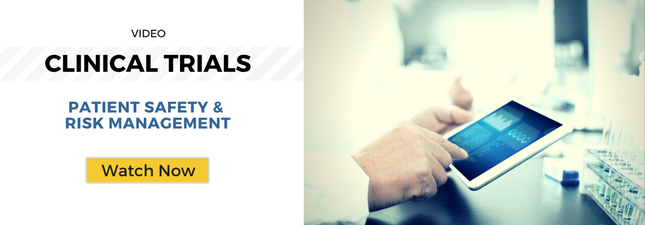 Clinicians issue tens of millions of warfarin prescriptions each year in the U.S., despite the increasing use of alternative anticoagulant medications. Practitioners will continue to encounter warfarin, known both for its irreplaceable value and potential for life-threatening complications. Due to the propensity for permanent disability and death from hemorrhagic complications, litigation is common and costly. Knowledge of the pharmacology, indications, monitoring, drug interactions and complications of warfarin is an essential tool to avoid patient harm, medical errors, and the medical-legal vulnerabilities associated with its use.
Clinicians issue tens of millions of warfarin prescriptions each year in the U.S., despite the increasing use of alternative anticoagulant medications. Practitioners will continue to encounter warfarin, known both for its irreplaceable value and potential for life-threatening complications. Due to the propensity for permanent disability and death from hemorrhagic complications, litigation is common and costly. Knowledge of the pharmacology, indications, monitoring, drug interactions and complications of warfarin is an essential tool to avoid patient harm, medical errors, and the medical-legal vulnerabilities associated with its use.
Malpractice Allegations
Some of the allegations related to hemorrhagic complications in patients taking warfarin include:
- Failure to elicit or document the history that the patient is taking warfarin
- Failure to recognize that drugs, diet or concomitant illness can potentiate warfarin
- Failure to include hemorrhagic complications in the differential diagnosis
- Failure to realize that trauma, however minor, may cause significant bleeding
- Failure to perform a CT for head trauma
- Failure to inform the patient of potential complications related to warfarin therapy
- Failure to routinely monitor the INR in a patient taking warfarin
- Failure to measure the INR in a warfarin patient presenting with acute illness or injury
- Failure to appropriately treat the patient with an elevated INR or bleeding complications
Indications for Warfarin Therapy
- Prevention and treatment of DVT
- Prevention and treatment of pulmonary embolism
- Prevention of complications of atrial fibrillation
- Prevention of systemic embolism (valvular heart disease, acute MI)
- Prevention of embolism with mechanical and bioprosthetic heart valves
Potential Contraindications for Warfarin Therapy
- Active bleeding
- Coagulation defects
- Thrombocytopenia (<50,000)
- Recent hemorrhagic stroke
- Excessive alcohol intake
- Uncontrolled hypertension
- Daily NSAID use
- Upcoming invasive procedure or major surgery
- Active peptic ulcer disease
- Non-compliance
- Dementia or major cognitive impairment
Risk Factors for Bleeding During Warfarin Therapy
- Age
- Hypertension
- History of GI bleeding
- Alcohol abuse
- Ischemic stroke
- Serious heart disease
- Diabetes
- Renal insufficiency
- Liver disease
- Malignancy
- Genetic factors
Common Drugs & Foods That Potentiate Warfarin
Hundreds of drugs, foods and supplements affect the pharmacology of warfarin and can cause diminished or enhanced activity. It is wise to assume that anything ingested besides air can affect warfarin. For example:
- Analgesics (aspirin, ibuprofen, acetaminophen)
- Antibiotics (ciprofloxacin, erythromycin, cephalosporins)
- Cardiac agents (amiodarone, diltiazem, propranolol)
- CNS drugs (sertraline – Zoloft, citalopram – Celexa)
- GI drugs (cimetidine, omeprazole - Prilosec)
- Foods (fish oil, mango, grapefruit)
- There are many more drugs, foods and supplements on this list.
Summary of 2012 ACCP Guidelines for Elevated INR with No Bleeding
- For patients with INR >4.5 but <10.0, lower the dose or omit a dose, monitor more frequently, and resume therapy with an adjusted dose when the INR returns to the therapeutic range. ACCP guidelines do not recommend vitamin K.
- For patients with INR >10, omit the next one or two doses, monitor more frequently, and resume therapy with an adjusted dose when the INR returns to the therapeutic range. Give vitamin K orally.
Guidelines for Elevated INR with Minor Bleeding
- Hold warfarin, monitor more frequently, and readjust dose.
- Consider vitamin K 2.5 to 5.0 mg orally.
Guidelines for Elevated INR with Major Bleeding
- For serious bleeding at any elevation of INR, hold warfarin therapy and give Prothrombin Complex Concentrate (PCC) plus vitamin K (5 to 10mg by slow IV infusion). Consider fresh frozen plasma (FFP) or recombinant factor VIIa (rVIIa).
- For life-threatening bleeding, hold warfarin therapy and give FFP and vitamin K (10 mg by slow IV infusion). Repeat if necessary, depending on INR.
A Warfarin Checklist
For every patient you encounter taking warfarin, especially in the acute care setting, it is worthwhile asking yourself the following 7 questions:
- Has there been an illness or a change in diet or medications that could affect the INR?
- Does the patient have any head trauma?
- Should I get an INR level?
- Does this patient need treatment for a subtherapeutic INR to prevent complications?
- Does this patient need treatment for an elevated INR to prevent hemorrhagic complications?
- Is it possible that a hemorrhagic complication exists?
- Does this patient need immediate treatment for an elevated INR with serious or life-threatening bleeding?
Interested in learning more for CME?
We cover warfarin complications more extensively in this course for CME. You can also take this supplemental course including expanded warfarin case studies.


